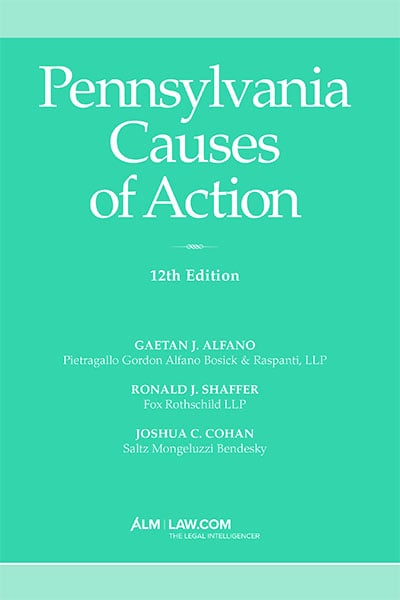0 results for '*'

Check the Scope: There's No Guarantee in Guaranties
A favorite form of credit enhancement for a company entering a commercial relationship with another entity is to obtain a guaranty from the parent or shareholder of that entity.If you're a securities defense litigator who fell into the pit of despair last week when you read about the plunge in securities class action filings, as tallied by Stanford and Cornerstone Research, it may already be time to start clawing your way back out. On Monday, NERA Economic Consulting came out with its midyear 2009 report on securities class actions, and it's a lot more upbeat than Cornerstone's. Yes, NERA acknowledges, new filings fell in June to 14, the lowest number since the ten filed in February 2008. But according to the study's coauthor, that drop could turn out to be as momentary as the dip in new filings last June and July.

Qualcomm Lawyers Can Break Attorney-Client Privilege
Lawyers sanctioned for their roles in the Qualcomm discovery debacle have maintained that they would be exonerated if allowed to break attorney-client privilege and tell their side of the story.

View more book results for the query "*"


Schwabe, Williamson & Wyatt names new leader in Seattle
Schwabe, Williamson & Wyatt has tapped Troy Greenfield to serve as partner in charge of its Seattle office. Greenfield, who joined Portland, Ore.-based Schwabe from Bullivant Houser Bailey last year, replaces a three-attorney team that was leading Schwabe's 32-lawyer Seattle office.

2nd Circuit Upholds Congress' Power to Pass Anti-Bootlegging Law
A law that criminalizes the bootlegging of live performances was a valid exercise of congressional power under the Commerce Clause, the 2nd U.S. Circuit Court of Appeals ruled Wednesday. Rejecting arguments that Congress exceeded its authority under the Copyright Clause, the 2nd Circuit said the anti-bootlegging law "differs significantly" from the Copyright Act and was therefore "not enacted under the Copyright Clause."
Inmate Loses Bid to Upset Conviction Based on DNA Tests
A defendant imprisoned for 30 years for rape and murder has lost his bid to overturn his conviction on the basis of what he claimed was newly discovered evidence. Manhattan Supreme Court Justice James A. Yates held that recent DNA test results on three hairs recovered at the crime scene and fingernail scrapings obtained from the murder victim failed to "establish or even create an inference beyond speculation" that some person other than Clifford Jones committed the crime.
Trending Stories
- 1How GC-of-Year Sam Khichi Has Helped CVS Barrel Through Challenges
- 2A Website is Not a ‘Place.’ What Took So Long To Get This Right?
- 3From ‘Deep Sadness’ to Little Concern, Gaetz’s Nomination Draws Sharp Reaction From Lawyers
- 4Legal Speak at General Counsel Conference East 2024: Julie Cantor, Associate General Counsel at Studs, Inc.
- 5Legal Speak at General Counsel Conference East 2024: Chris Correnti, President & CEO & General Counsel AGC America, Inc.
Featured Firms
Law Offices of Gary Martin Hays & Associates, P.C.
(470) 294-1674
Law Offices of Mark E. Salomone
(857) 444-6468
Smith & Hassler
(713) 739-1250
More from ALM
- Legal Speak at General Counsel Conference East 2024: Julie Cantor, Associate General Counsel at Studs, Inc. 1 minute read
- Legal Speak at General Counsel Conference East 2024: Chris Correnti, President & CEO & General Counsel AGC America, Inc. 1 minute read
- Legal Speak at General Counsel Conference East 2024: Marc Mandel, Senior Vice President & General Counsel at EXOS 1 minute read
Resources

Lex Machina Contracts: Commercial Litigation Report 2024
Brought to you by LexisNexis®
Download Now

White Collar Investigation Practice: Global Expertise in Complex Investigations
Brought to you by HaystackID
Download Now

Criminal Division's Evaluation of Corporate Compliance Programs: September 2024 Updates Review
Brought to you by NAVEX Global
Download Now

Data Management and Analytics: The Key to Success for Legal Operations
Brought to you by DiliTrust
Download Now



